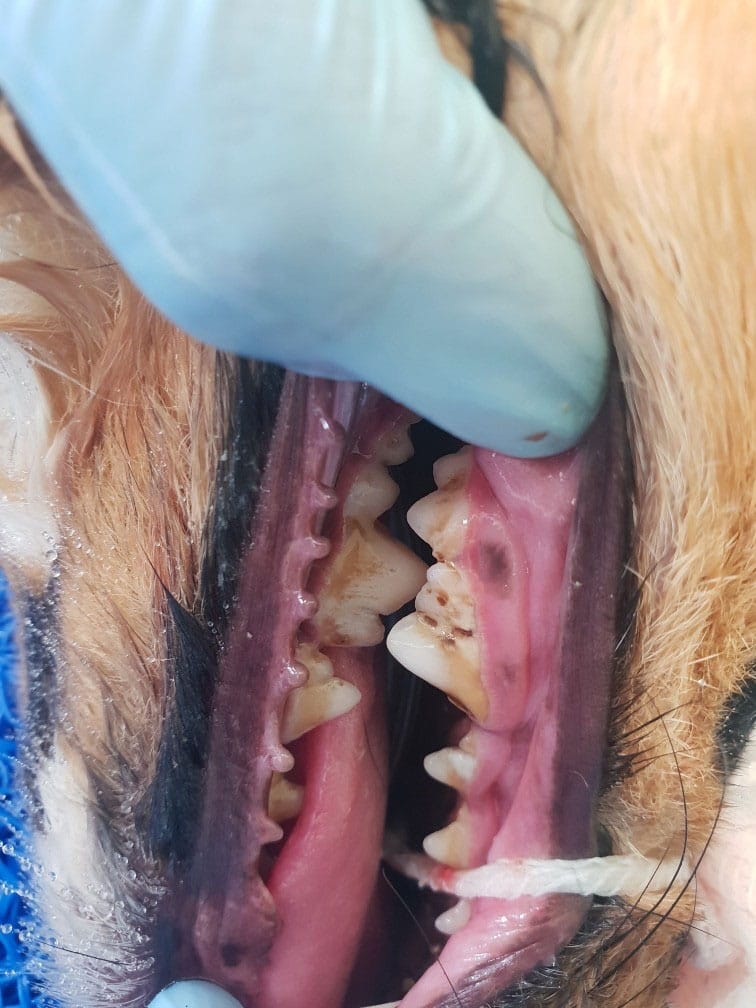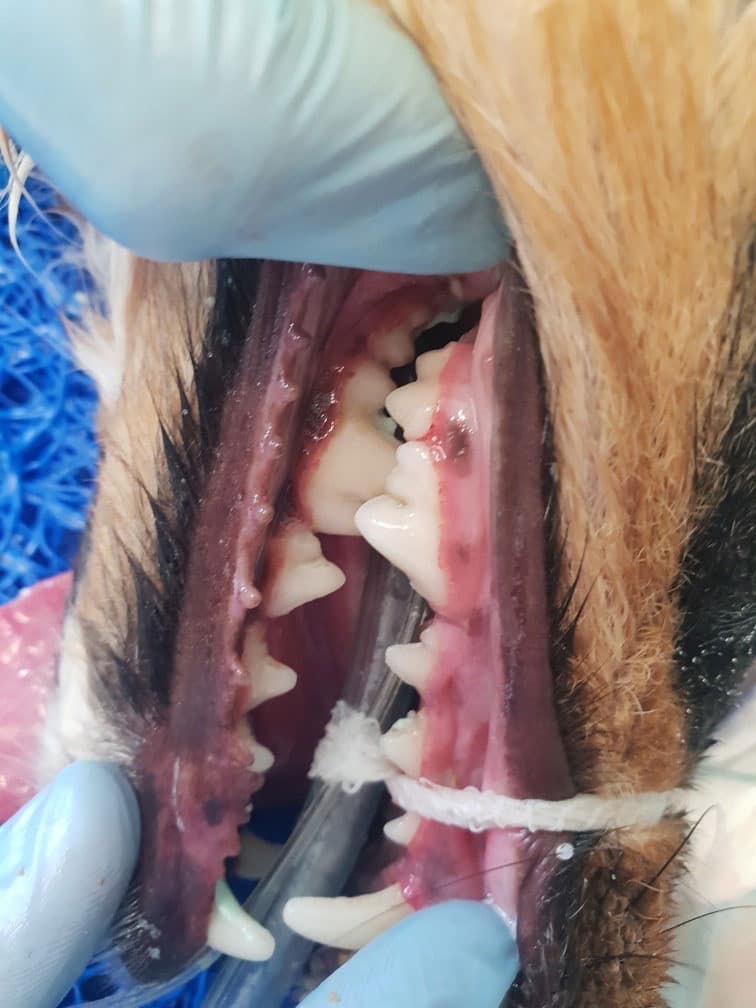PROCEDURE COSTS
All dental procedure costs are based on time
DENTAL TREATMENTS
Scale & Polish with no Extractions
Cat est. from $550.00
Dog est. from $700.00
Dental Radiographs est. from $100, discuss with your vet
Scale and Polish with Extractions
Cat from $800 to $2000+
Dog from $1000 to $2500+
Please note: these are average estimates and prices may vary depending on the severity of your pet’s dental disease. Please ask the vet if you would like a more accurate estimate or have any other questions.
Prescription antibiotics may be necessary
The mouth of your pet contains a lot of bacteria. The number and potential danger of these bacteria increase with the severity of oral cavity disease in your pet. The vet may start antibiotic treatment before the dental surgery or immediately after. Pain relief will also be necessary if your pet has extractions. This may involve nerve blocks with local anaesthetics as well as various kinds of pain medication to go home with.
Specialised dental diets are recommended to keep the teeth clean after surgery.
These scientifically formulated biscuits will minimise the need for dental work in the future provided they make up at least 80% of the total diet. Examples and approximate prices include:
What are the risks of anaesthesia?
Although anaesthesia always carries a degree of risk, the modern drugs in use in practice today minimise the risk, even in older pets. However, if your pet is over 8 years old or suffering from any health problems, we recommend the following options:
- Pre-anaesthetic blood test to identify any pre-existing conditions. The price for this is approximately $105 to $140. If we also test the thyroid gland in a cat, this is an additional $55.
- Intravenous fluid therapy (IV drip). This maintains adequate blood pressure and hydration, thereby helping to avoid damage to the vital organs eg. kidneys, which may otherwise occur. The discounted price is approximately $ 91.20.
What kind of dental problems do pets have?
Dental disease is as common in pets as it is in people. The most common problem is periodontal disease. Tartar (made up of saliva, bacteria and food debris) builds up and causes irritation of the gums around the base of the teeth. The resulting inflammation is gingivitis. The gums may recede, exposing the roots, which can lead to pain, infection and tooth loss due to bone resorption. Your pet may have bleeding gums, painful chewing, bad breath and excessive salivation. Sometimes your pet will rub or paw at its sore mouth.
Up to 85% of pets over 3 years of age show signs of gum disease.
Dental disease is also a launch pad for infections which travel via the blood to other parts of the body, especially the kidneys, heart and liver. That is why we are so passionate about catching gum disease early to help keep your pet as happy and healthy for as long as possible.
What is involved in cleaning my pets’ teeth?
There are three steps in the cleaning process that your pet will undergo. These are:
- Scaling to remove the tartar above and below the gum This is done with ultrasonic cleaning equipment or with hand instruments.
- Polishing to smooth the surface of the teeth, making plaque build-up more difficult.
- Flushing to remove dislodged tartar from the teeth and help to remove the bacteria that accompany it.
It may be necessary to extract diseased or damaged teeth.

Before

After
How can I prevent tartar formation and dental disease in my pet?
- Brushing your pet’s teeth is the most effective way of removing plaque before it turns into tartar. It is important to use an animal toothpaste and toothbrush. We can advise on the best way to brush your pets’ teeth.
- Premium quality dental diets, such as Hills t/d or Royal Canin Dental, are available from the clinic to minimise tartar build up. Feeding your furry friend these diets is the easiest method to help prevent dental disease.
- Encourage chewing of raw-hide or dental chew toys. Dogs which chew more tend to accumulate tartar more slowly. We do not advise feeding bones to clean your pet’s teeth.
- Routine dental cleanings are a vital part of your pet’s preventative healthcare plan, just like it is for a human. It is recommended that people go to the dentist once or twice a year for a regular check-up and routine scale and polish. The same applies to your pets and we recommend this every 6-12 months.
- As with everything, prevention is better than cure. Regular preventative dentals work out cheaper in the long run compared to more expensive dental treatment when there is dental disease.
- The frequency of scaling and polishing will be individually assessed for each of your pets as there are so many variables that affect your pet’s dental health.
